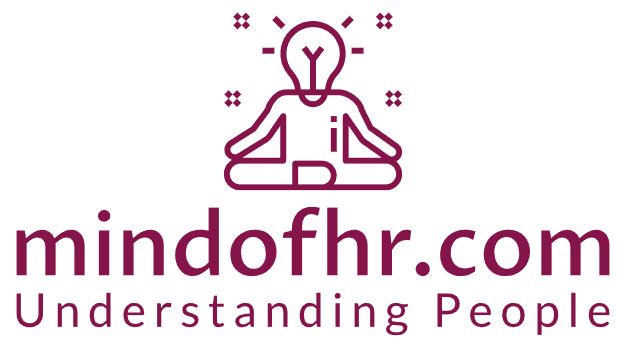Even during the normal circumstances, the healthcare is perceived to be emotionally distressing. With the arrival of Covid-19 pandemic, the distress is even more, the workers must fight a potentially lethal virus with shortage of PPE kits, limited ventilators, ICU beds etc. There is also the risk of taking the virus to their homes and to their families. Some workers have opted to completely isolate themselves socially. The extreme workload and huge number of incoming patients have further added to the emotional as well as physical distress faced by the healthcare workers. Many healthcare organizations still do not provide any support beyond the basic policies of protection and job security. The shortage of PPE kits during the early days of pandemic had forced the doctors to use makeshift masks and face shields, which provided little to no protection to them. The healthcare workers are overworked, with equipment and protection kit shortage can contribute to them feeling demotivated. It is imperative for the healthcare organizations to keep their employees motivated during such times, lack of which would affect staff retention and quality of the healthcare service provided.
We know that motivation can be defined as an individual’s willingness to exert and maintain an effort towards organizational goals. The more motivated an employee is, the more his or her job satisfaction will be, and more are the chances of his or her retention. Motivation is influenced by social, professional, and economic factors. If a health worker is retained, there is cost saving in terms of recruiting, hiring, and orienting new workers to their posts. Attrition especially amongst doctors and nurses have severe ramifications for the health of the people of the nation.

Motivation is of two types- Intrinsic and Extrinsic. Intrinsic motivation includes doing things which are personally rewarding to one and which gives one joy. Extrinsic motivation is doing things to earn a reward or to get monetary benefits.
During these trying times, it is important to have motivated employees in the healthcare industry more than in any other industry because during the current crisis, this is the most needed sector in our entire industrial ecosystem. People need doctors, hospital beds, medicines, medical equipment, and access to testing and diagnostic facilities on time.
Having motivated employees in the healthcare workforce is extremely beneficial. They are highly engaged, better problem solvers and deal with uncertainties in a better way. They have higher levels of innovation, creativity, and customer- centricity. They have higher levels of job satisfaction as well.
Low levels of employee satisfaction can endanger economic stability, lower business performance, lower individual productivity, cause poor work quality, poor work atmosphere, demotivated teams, and dissatisfied clientele.
There are seven major factors which can increase or decrease motivation levels in an employee working in healthcare industry:
- Financial (salary or allowances)
- Career development (possibility of promotion)
- Continuing education
- Hospital infrastructure
- Resource availability (availability of equipment and medical supplies)
- Hospital Management (whether positive or negative work relationship with the management)
- Recognition or appreciation (from superiors, peers and the community)
Expectancy Theory of motivation
This theory was developed by Victor H. Vroom. This theory is made on an assumption that our behavior is based on making a conscious choice, from a set of possible alternative behaviors.
As a manager this means that one of the team members will only choose to work hard if he believes that the outcome of choosing this option would bring him the most desirable outcome. There three variables in the expectancy theory (a)Expectancy: (Effort- performance). (b)Instrumentality: (performance- Outcome) (c)Valence: (Outcome-Reward). All these three factors must be present to motivate employee effectively.
Expectancy: It is the belief that if one works hard, he/she will be able to achieve the targets set by the manager/organization. In other words, it is a person’s estimate that job-related effort will result in estimated level of performance. Expectancy can range from 0 to 1. If the employee feels that there is no chance that his/her effort will lead in desired performance level, then the expectancy would be 0. On the other hand, if the employee is certain that his/her effort will result in desired performance level, then the expectancy would be 1.
Instrumentality: it is a person’s estimate that a given level of achieved performance will result in work outcomes. Instrumentality also can range from 0 to 1. If an employee feels that his/her good performance rating will lead to promotional increase, the instrumentality value is 1. If on the other hand the employee feels that there is no relationship between a good performance and a promotion/outcome, then Instrumentality would be 0.
Valence: it is the strength of a person’s preference of a reward. It determines the value of rewards. It could positive, negative or zero. If an employee wants to achieve a reward the valence would be positive, if not then, valence would be negative. Whereas if the employee is indifferent to a reward the value of Valence would be 0.
Vroom’s theory also suggests the expectancy, instrumentality, and valence are related to motivation by the following equation,
M = E * I * V (Motivation = Expectancy * Instrumentality * Valence).
According to this equation, when all expectancy, instrumentality and valence are high, it would result in high levels of motivation. If any of the parameter is 0 then motivation would be 0. Thus, even if the employee feels that his/her efforts would lead to higher performance, which in turn would result in reward, motivation would still be zero if the rewards are of no value to the customer.











